|
|
This week in: Peace & Security Publications |
IPSI | Africa | Americas | East Asia | Europe & Central Asia | Middle East | South Asia
|
|
|
|
|
This week in Peace & Security Publications
|
|
|
|
|
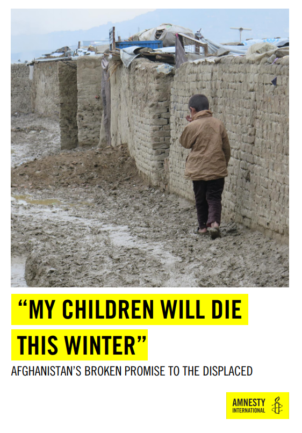
Amnesty: This 2016 report evaluates the implementation of the IDP Policy so far and provides an update on the situation facing…
|
|
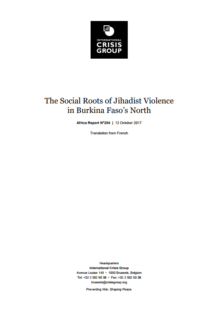
ICG: In 2015, Burkina joined the group of Sahel countries under attack from armed and criminal groups that are mainly based in Mali but that also operate from several countries in the region. The area most affected by these attacks is…
|
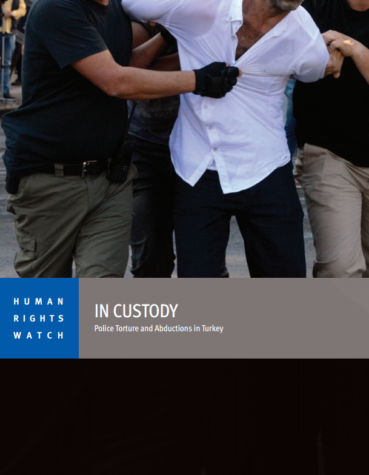
HRW: Based on interviews with lawyers and relatives, and on a review of court transcripts, this report looks in detail at ten cases in which security forces tortured or…
|
|
|
|
|
|
|
This week in Sub-Saharan Africa
|
|
|
|
|
KENYA: Elections in balance as crisis deepens after Opposition quits
On Tuesday, Kenyan opposition leader Raila Odinga announced his withdrawal from the re-run of the Presidential elections, saying electoral officials have failed to make necessary election reforms. Mr. Odinga and his National Super Alliance (NASA) party supporters pledged not to take part in the vote re-run unless reforms were made to the Independent Electoral and Boundaries Commission (IEBC), the commission that conducts the elections. Comment: Supreme Court Judges ordered the re-run after nullifying President Kenyatta’s win in the August 8th vote, citing procedural irregularities. According to the Supreme Court Ruling, the poll pitting Kenyatta against Odinga must be held by the end of October. (Aljazeera, The New York Times, The Standard, Reuters)
|
|
|
|
|
|
LIBERIA: Voting underway to pick Johnson Sirleaf’s successor
On Tuesday, Liberians voted to elect a new president and legislature in an election that will see the country’s first transfer of power from one democratically elected leader to another in more than 70 years. President Ellen Johnson Sirleaf, the continent’s first female president, is leaving power after serving 12 years in office, the maximum allowed under the Liberian Constitution. A presidential candidate must win more than 50 percent of the votes to avoid a second round of elections. Twenty candidates, including the current vice president, former world footballer of the year and a model, are running for the country’s top seat – with 2.2 million voters registered in the small country of 4.6 million people. Comment: Liberia, Africa’s first republic, exited a brutal 14-year civil war in 2003, which left an estimated 250,000 people dead; an Ebola crisis in 2014-15 killed nearly 5,000 people. (Vanguard, Aljazeera, ABC News, CNN)
|
|
|
|
|
|
ZAMBIA: Emergency powers decree ended
On Wednesday, the emergency powers invoked by Zambian President Edgar Lungu three months ago expired at midnight according to the nation’s Justice Minister. On July 5, President Lungu invoked emergency powers to deal with what he called “acts of sabotage” by his political opponents following a spate of fires in the capital Lusaka and other towns. The package was approved by parliament on July 11. The spokesman for the United Party for National Development (UPND)—Zambia’s main opposition party—said the government only used the decree to intimidate opposition supporters. On the basis of the decree, several opposition members were detained and later released without charges. Comment: Under state of emergency laws, police can prohibit public meetings, detain suspects longer than usual, search without a warrant, close roads, impose curfews and restrict movements. (News24, Aljazeera, Reuters, Xinhuanet)
Researched/Written by Brian Adienge
|
|
|
|
|
This week in the Americas & Caribbean
|
|
|
|
|
HAITI: UN Peacekeepers to end mission after 13 years in the country
On Thursday, the UN announced that peacekeepers will officially end their mission in Haiti to be replaced by a smaller unit made up of 1,300 international civilian police officers. The current mission, known as MINUSTAH, was established in 2004 to assist the country after events which ended with the exile of former President Jean-Bertrand Aristide. Comment: The UN peacekeepers caused turmoil when a cholera outbreak occurred in October 2010 after waste from the peacekeeping base was leaked into the country’s largest river. (Al Jazeera, ABC News, EuroNews)
|
|
|
|
|
|
UNITED STATES: U.S. suspends visas for Turkish citizens amid growing tensions
On Sunday, the U.S. Embassy in the Ankara issued a statement saying that recent diplomatic events caused the U.S. government to halt the issuance of visas to Turkish citizens. Earlier in the week, Turkish officials arrested a U.S. Consulate employee of Turkish descent for alleged ties to 2016’s summer coup. U.S. Ambassador to Turkey John Bass stated that the decision was not to officially ban all Turkish citizens from coming to the United States. Comment: Turkish President Recep Tayyip Erdogan has called the decision “very, very saddening.” There has been no official comment from President Donald Trump or The White House. (The New York Times, The Washington Post, Al Jazeera, BBC News)
|
|
|
|
|
|
UNITED STATES: House passes bill to include women in international negotiations
On Friday, the House passed the Women, Peace, and Security Act of 2017, which requires the United States to increase women’s participation in peace negotiations and conflict prevention. The act mandates training in the areas of defense, diplomacy, military, and development for women to engage. The bill has been in the making for the last five years. Comment: As passed by Congress, the Department of State, the Department of Defense, and the U.S. Agency for International Development will play critical roles in establishing guidelines and solidifying the act. (Congress, The House Foreign Affairs Committee, USA Today)
|
|
|
|
|
|
UNITED STATES: U.S. withdraws from UNESCO, citing bias against Israel
On Thursday, U.S. President Donald Trump announced that the United States will withdraw from UNESCO in response to alleged anti-Israel bias. Israeli Prime Minister Benjamin Netanyahu stated that Israel will also withdraw from UNESCO, and that he regarded the U.S. decision as “brave and moral.” In accordance with UNESCO rules, the official U.S. withdrawal will be in effect by December 2018. Comment: Since Palestine was admitted as a member in 2011, the U.S. has withheld funding from UNESCO. Following two years of nonpayment, the U.S. lost its voting power in the organization in 2013. The country now owes more than USD 500 million in unpaid dues. (Reuters, The Washington Post, CNN, The New York Times)
Researched/Written by Blessing Ikpa
|
|
|
|
|
|
This week in East Asia & Pacific
|
|
|
|
|
INDONESIA: Police raid “gay spa” in Jakarta, 51 men detained
On Friday, police arrested 51 men at a spa popular for gay men, seven of which were foreigners from China, Singapore, Thailand, Malaysia, and the Netherlands. Most were released Saturday, but the employees will be charged with violating the Law on Pornography and could face up to six years in prision. Comment: This is the fifth raid in Indonesia targeting LGBT people this year. Human Rights Watch pointed to the issue of using the Law of Pornography as a criminal offense when some cases do not involve a victim. Homosexuality is restricted under the Law of Pornography which prohibits “…lesbian sex, and male homosexual sex.” (Jakarta Post, Human Rights Watch, Reuters)
|
|
|
|
|
|
NORTH KOREA: Hackers steal South Korean classified military documents
News surfaced this week of North Korean hackers stealing documents from South Korea, including South Korean wartime contingency plans and joint South Korea- U.S. military drills. According to South Korean Democratic Party lawmaker Rhee Cheol-hee, the hackers gained access in September of last year, and 80 percent of the compromised documents have yet to be identified. The South Korean defense ministry refused to comment; North Korea denied the claim and accused South Korea of fabricating the story. Comment: Seoul experienced several cyber attacks purportedly by government of North Korea in recent years (Foreign Policy, BBC, The Guardian)
|
|
|
|
|
|
THAILAND: General election date announced
On Tuesday, military-appointed Prime Minister Prayut Chan-ocha announced that the general election will take place in November 2018, with an exact date to be announced in June 2018. The announcement comes after at least two previous postponed election announcements. Analysts believe the announcement was made during the same month of late king Bhumibol Adulyadej’s funeral in order to reduce the likelihood of protesting. Comment: If there are no delays, the National Legislative Assembly will need three months to deliberate bills, three months for administration, and five months for election preparation. Earlier this year, the Thai military pledged not to stage a coup after the election. (Bangkok Post, Channel News Asia, BBC)
Researched/Written by Rabia Uddin
|
|
|
|
|
|
This week in Europe & Central Asia
|
|
|
|
|
KOSOVO: First gay pride parade calls for more protection for the LGBT community
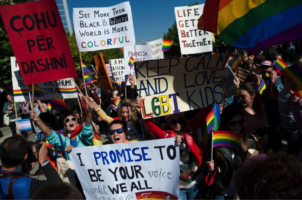 |
|
On Tuesday, hundreds of members of the gay community and allies took to the streets of Pristina, Kosovo for the first official gay pride parade since the country declared independence in 2008. The event, dubbed “In the Name of Love,” was organized by nine LGBT NGOs to urge the public and government to do more to prevent violence against members of the LGBT community and to create better services for victims of such violence. Prime Minister Ramush Haradinaj attended the event, along with a number of Western diplomats, and President Hashim Thaçi, though not in attendance, spoke in favor of the event, saying that Kosovo and its citizens should not impose “fear or threats against an individual or against any group.” There were threats made to event organizers, but police reported no large-scale violence and only one incident of protestors attempting to interrupt the parade. Comment: This event also represented the hope for increased LGBT rights throughout the Balkan region, and representatives from the LGBT communities in Serbia, Albania, Macedonia, and Bosnia were all present. A 2015 report from the National Democratic Institute showed that there are still significant levels of homophobia in the region and that Kosovo ranked as the most homophobic country in the region. (Balkan Insight, Radio Free Europe, The Independent)
|
|
|
|
|
|
UNITED KINGDOM: Audit on race inequalities sheds light on lives of minority populations
On Tuesday, the Race Disparity Audit of public services published data collected on how racial and ethnic minority groups experience employment, education, health, and the criminal justice system in the UK. Prime Minister Theresa May, who ordered the audit after she came to office a year ago, acknowledged that the results were “uncomfortable” but that the government is now required to consider these disparities when forming policies because “there is nowhere to hide.” Key findings included that: black Caribbean students are excluded from school at three times the rate of their white counterparts; black men are more likely to be found guilty in crown court than white men; white people and those of Indian and Pakistani backgrounds are more likely to own homes than black people and those from Bangladeshi backgrounds, even when factoring in age, income, and socioeconomic group, and that Pakistani and Bangladeshi workers receive the lowest average hourly pay while Indian workers receive the highest. Prime Minister May says that it is now up to the government’s agencies to “explain or change” the disparities in the treatment of people in the UK. Comment: Prime Minister May promised in July 2016 that fairness would be a central theme of her government, and sees this audit as the first step in creating “a fairer Britain for everyone.” (Independent, The Guardian, The New York Times)
|
|
|
|
|
|
REGIONAL: CIS country representatives meet to discuss cooperation
|
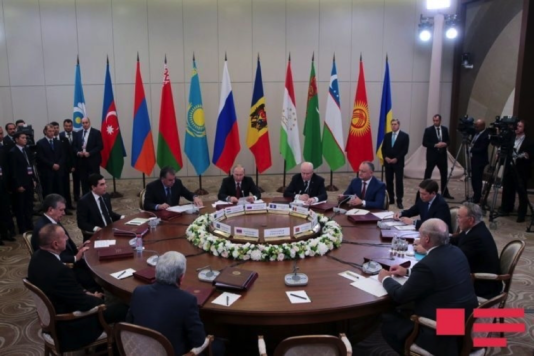 |
On Wednesday, the ministers from the Commonwealth of Independent States (CIS), a regional organization made up of former Soviet republics, met in Sochi, Russia to discuss areas of future cooperation between the countries. The ministers discussed joint efforts in economics, defense policy, border protection, counter-terrorism, as well as cultural and humanitarian efforts. 18 documents drafted at this meeting will go to the Council of Heads of State and the Council of Heads of Government for their consideration at the meeting set to happen on November 3 in Tashkent, Uzbekistan. Drafted documents ranged from agreements on sharing information on the war on terror and extremism to declaring 2019 the “Year of the Book.” Comment: Armenia, Azerbaijan, Belarus, Kazakhstan, Kyrgyzstan, Moldova, Russia, Tajikistan, and Uzbekistan are all CIS member-state; however, Kyrgyz President Almazbek Atambaev announced on October 9 that he would not attend in the wake of accusations that Kazakhstan is backing the government opposition party in an attempt to influence the country’s elections on October 15. (Asbarez, TASS, Radio Free Europe)
Researched/Written by Amy Pipher
|
|
|
|
|
|
This week in the Middle East & North Africa
|
|
|
|
|
IRAN: Tehran threatens harsh response if U.S. designates IRGC as a terrorist group
|
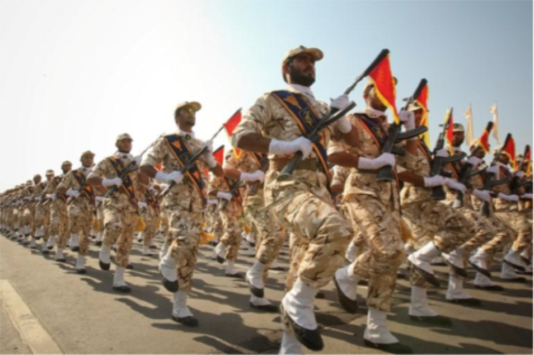 |
On Monday, Iranian Foreign Minister Bahram Qasemi said in his weekly press briefing that the U.S. decision to designate the Islamic Revolution Guards Corps (IRGC) as a terrorist organization would be a “strategic mistake” and would put the U.S. “on the wrong path.” Qasemi echoed the sentiments of Major General Mohammed Ali Jafari, commander of the IRGC, saying that Iran would be compelled to treat American forces the same way as it does the self-proclaimed Islamic State. Comment: In early August, U.S. President Donald Trump signed the Countering America’s Adversaries Through Sanctions Act, which designates Iran’s IRCG as a terrorist organization; however, the IRCG is not listed on the Department of State’s list of foreign terrorist organizations at this time. Tensions and rhetoric between Washington and Tehran continue to mount as President Trump is expected to decertify the Iran nuclear deal on October 15 due to Iran’s military actions. European signatories to the deal are worried that such a move would cause regional destabilization and have pledged they will not follow the U.S. should Washington nullify the deal. The last time the U.S. designated a sovereign formal military structure as a criminal organization was Nazi Germany’s Waffen-SS during the Nuremberg Trials. (IRNA, CBS News, FT, Reuters)
|
|
|
|
|
|
ISRAEL: Knesset advances plans for 2,000 settlement homes throughout West Bank and Hebron
On Tuesday, Israel’s Civil Administration High Planning Subcommittee announced it will review plans for an additional 1,941 housing units in Jewish settlements in the West Bank, of which 1,196 of them will be up for final approval. Earlier reports speculated the number of approved units to be more than 3,800, upsetting settlers who were promised more than 3,000 units in a closed-door meeting with Prime Minister Binyamin Netanyahu last month. A quarter of the housing units slated for final approval are projects for residents of the settlement outposts Ulpana, Migron and Amona, which the High Court of Justice ruled were built illegally on private Palestinian land and subsequently razed. Additionally, the Defense Ministry announced 31 housing units are to be built in the highly contentious Jewish settlement in Hebron – the first construction approval since 2002. The Palestinian-lead Hebron municipality and the Committee for Revitalizing Hebron, which fights for Palestinian construction and against Israeli settlements in the city, said they may take Israel to court. Comment: The Palestinians and most of the international community consider any Israeli settlement construction in the West Bank illegal under international law and an obstacle to peace. Israel distinguishes between legal settlements on designated state-owned lands and illegal outposts on private Palestinian lands, and maintains the position that the fate of the settlements should be decided in negotiations for a final settlement with the Palestinians. (Haaretz, The Times of Israel, AP)
|
|
|
|
|
|
REGIONAL: U.S. seeks unconditional surrender from self-proclaimed Islamic State as it crumbles in Iraq and Syria
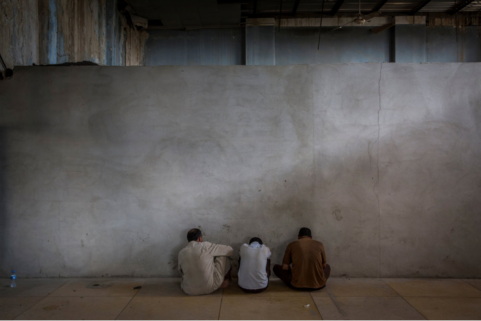 |
|
On Wednesday, the U.S.-led international coalition battling the self-proclaimed Islamic State (IS) stated they will not accept a negotiated withdrawal for hundreds of IS militants bunkered in the Syrian city of Raqqa, their de facto capital. The coalition besieged Raqqa in early June and pushed IS out of more than 80 percent of the city. In the past month, 15 IS fighters surrendered to coalition fighters, a trend also seen in Iraq. After the fall of their Iraqi stronghold in Hawija, more than 1,000 fighters turned themselves in with their families to a detention center in Dibis, Iraq, apparently on orders from their leaders. Most are claiming to be recent recruits and low-level cooks or clerks – not fighters – and claim not to know of the human rights atrocities that have made the group notorious. The similar responses by IS prisoners led Kurdish interrogators to believe they have been coached. Comment: IS has suffered a string of rapid defeats over the past few months; the fight for Mosul, Iraq took nine months with few surrenders, while Tel Afar, Iraq lasted 11 days with nearly 500 fighters having surrendered. Nonetheless, casualties continue to mount, with September being the worst month in 2017 for civilians in Syria according to the UN. (New York Times, Reuters, AP)
Researched/Written by Zachary Libow
|
|
|
|
|
|
AFGHANISTAN/PAKISTAN: Pashtun villages brace for fence along porous border
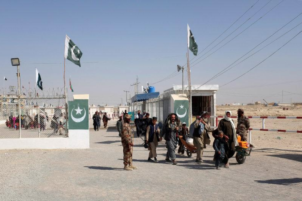 |
|
This week, Pakistan began building a fence along the 2,500km colonial-era Durand Line border with Afghanistan amidst increasing security concerns regarding illicit trade and threats of Islamist attacks. The fence will largely affect the province of Balochistan and the Federally Administered Tribal Areas (FATA) along the disputed porous border drawn by the British in 1893. It will run through at least seven Pashtun villages, dividing communities where many claim tribal allegiance over allegiance to either state. According to a senior military source, Pakistan also plans on establishing at least 100 new border posts and is recruiting more than 30,000 soldiers to man them. Comment: Tension between Afghanistan and Pakistan has increased along the border since Pakistan’s census survey. In May border troops from both countries clashed near the border-crossing district of Chaman, killing ten civilians. Afghan officials and local civilians who oppose the fence see it as damaging to cross-border business and family relations, while some supporters, including the commander of Pakistan’s Frontier Corps paramilitary service, cite U.S. President Trump’s argument for a Mexican border wall as setting precedence for security measures. Kabul-based former Taliban member and analyst, Wahid Muzhdah, believes fencing will not stop militants from using over 20 unofficial crossings between sanctuaries along the border. (India Times, India.com, ZeeNews, DW, Reuters)
|
|
|
|
|
|
BANGLADESH: Ministry of Health begins massive vaccination campaign amongst Rohingya as refugee arrivals reach unprecedented heights
|
 |
On Tuesday, the Ministry of Health, supported by the World Health Organization (WHO) and The United Nations Children’s Fund (UNICEF), began a mass oral cholera vaccination campaign targeting Rohingya refugees and host communities in Bangladesh. The campaign has mobilized more than 200 vaccination teams with plans to vaccinate a total of 650,000 people. The UN High Commissioner for Refugees estimates 11,000 Rohingya refugees are now entering Bangladesh from Myanmar per day, a new high, and the WHO has stated there is a “clear and present risk” of a cholera outbreak due to unsanitary conditions and overcrowding. Comment: No cases of cholera have been identified thus far, though more than 10,000 cases of diarrhea have been reported in the last week alone. This vaccination campaign is the second largest in history, behind the one conducted in Haiti in 2016 after Hurricane Matthew. Cholera is a water-borne disease that can kill in 36 hours, and is especially dangerous amongst children. (Voice of America, BBC, Reuters, UN, UNHCR, WHO)
|
|
|
|
|
|
INDIA: Supreme Court rules sex with underage girls is rape, even in marriage
On Wednesday, the Indian Supreme Court classified sexual intercourse with a wife under 18 as rape, amending Section 375 of India’s Penal Code that permitted men to have sex with girls between 15-18 if they formed a married couple. It is estimated there are more than 26 million child brides in India, the highest number in the world according to UNICEF. The Court criticized the government for legitimizing rape of married underage girls by their husbands, and called for all necessary measures to be taken to prevent sexual exploitation and abuse of minors in accordance with the UN Convention on the Rights of the Child, which India ratified in 1992. Comment: Though likely difficult to enforce, Wednesdays decision is being seen as a step forward for women’s rights in India, as well as encouraging future rulings regarding marital rape. (Huffington Post India, Indian Express, Times of India, Al Jazeera, BBC)
Researched/Written by Natalie A. Landau
|
|
|
|
 |
|